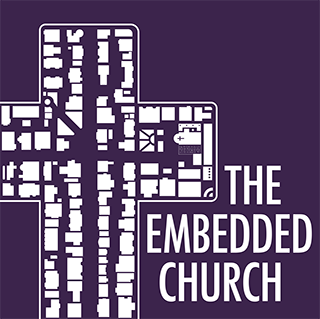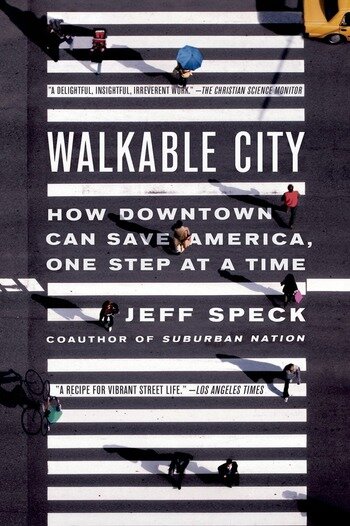Season 3: Reading with Eric & Sara Joy
Episode 2 - Walkable city
Why is walking so important for our health, wealth, and the environment? Are there particular conditions in a city that encourage (or discourage) people to walk? Does promoting walkability mean we get rid of all the cars?
Through our discussion of Walkable City, we hash out Jeff Speck's research that shows there are a myriad of health, economic, and sustainability benefits associated with walking. And, we consider the four conditions, or characteristics, of walkability that he believes need to be present in order to encourage people to walk. Walks need to be useful, safe, comfortable, and interesting.
Speck further unpacks each one of these conditions with 10 distinct steps of walkability. We dig into several of these steps for our listeners, while also sharing why we thinking walkability is important to consider as Christians and ways churches can be involved in conversations and actions around walkability in their own communities.
Links to resources and terms from this episode:
Resources
Walkable City: How Downtown Can Save America, One Step at a Time by Jeff Speck
The Walkable City: TED Talk by Jeff Speck
What’s a STROAD, and why does it matter? Strong Towns
Walkscore an online tool for scoring your neighborhood in terms of walkability, which takes into factors such as proximity of goods and services and access to transit.
Peripateo a Greek word used often in the Bible (93 instances in the NT) both for literal walking and for living in general “I urge you to live (walk) a life worthy of the calling you have received.” Ephesians 4:1
Genesis 3:8-9 “Then the man and his wife heard the sound of the Lord God as he was walking in the garden in the cool of the day, and they hid from the Lord God among the trees of the garden. But the Lord God called to the man, ‘Where are you?’”
Micah 6:8 “He has shown you, O man, what is good. And what does the Lord require of you? To act justly and to love mercy and to walk humbly with your God.”
Luke 10:33-34 “But a Samaritan, as he traveled, came where the man was; and when he saw him, he took pity on him. 34 He went to him and bandaged his wounds, pouring on oil and wine. Then he put the man on his own donkey, brought him to an inn and took care of him.”
Mark 5:27-29 “When she heard about Jesus, she came up behind him in the crowd and touched his cloak, because she thought, ‘If I just touch his clothes, I will be healed.’ Immediately her bleeding stopped and she felt in her body that she was freed from her suffering.”
key terms
Accessory Dwelling Unit (ADU)
Enclosure
Inclusionary Zoning
Induced Demand
Missing Tooth Concept
Mixed Use Development
Walkability



